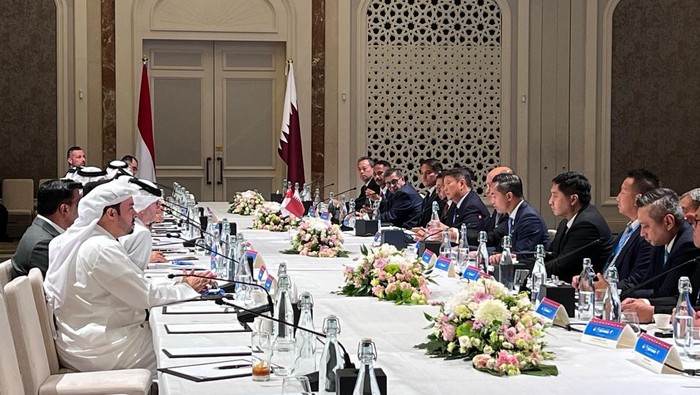In an ambitious move to address the nation’s housing backlog, Indonesia's government has launched a 3 million housing program, seeking foreign investment to make the initiative a success. At the recent Indonesia-Qatar CEO Forum, held in Doha, key figures such as Coordinating Minister for Economic Affairs Airlangga Hartarto and Minister of Defense Prabowo Subianto met with business leaders and investors from Qatar to promote affordable housing investment opportunities.
This article explores the significance of this program, the investment potential it offers, and how it aligns with Indonesia’s long-term economic goals.
Affordable Housing Investment: A Strategic National Priority
Indonesia faces a housing backlog of over 12 million units, with millions of families still struggling to access decent, affordable housing. In response, the government has declared the construction of 3 million new homes by 2029 as a top national agenda. The objective is to build affordable housing not only in urban centers but also in rural and underdeveloped regions.
To achieve this, the government requires robust support—both from public-private partnerships and foreign investors. The Qatar CEO Forum served as a platform to encourage participation from international developers, construction firms, and financial institutions. The Indonesian delegation emphasized that housing infrastructure is not only socially vital but also a commercially attractive opportunity.
Why Qatar? Strategic Bilateral Synergies
Qatar has emerged as a significant investor in Indonesia’s infrastructure projects, ranging from energy and transportation to hospitality. The choice to engage Qatar specifically stems from several strategic reasons:
- Qatar’s Sovereign Wealth Fund has experience in large-scale urban development, including affordable and smart housing.
- Indonesia’s rising middle class presents a lucrative real estate market.
- Bilateral trade relations have been strengthening in recent years, with both countries exploring synergies in technology, finance, and infrastructure.
During the forum, Indonesia’s delegation presented its affordable housing investment roadmap, highlighting the potential returns and socio-economic impacts. With the backing of President-elect Prabowo, the forum also reassured investors about policy stability and continuity.
Government Incentives to Boost Affordable Housing Investment
To attract foreign investors, Indonesia is offering a series of incentives under the Public Housing Savings Program (Tapera) and other initiatives:
- Tax holidays for developers who build low-cost housing
- Simplified licensing for land and construction permits
- Land banks to ensure availability of strategic locations
- Subsidized interest rates for end-buyers through housing finance schemes
In addition, the Indonesian government is open to joint ventures with Qatari firms, especially those with experience in developing housing for rapidly growing urban populations. The presence of key figures like Airlangga Hartarto and Ara (Putri Komarudin) at the CEO Forum was a strategic move to build trust and drive confidence among Gulf investors.
Aligning with Sustainable Development Goals (SDGs)
This affordable housing initiative is more than just a real estate venture; it aligns closely with several United Nations Sustainable Development Goals, particularly:
- SDG 11: Sustainable Cities and Communities
- Ensuring access to adequate, safe, and affordable housing.
- SDG 8: Decent Work and Economic Growth
- The construction sector will generate millions of jobs across the country.
- SDG 9: Industry, Innovation, and Infrastructure
- Promotes resilient infrastructure development and technological innovation in housing.
Indonesia also intends to incorporate green building practices, energy-efficient systems, and sustainable construction materials in these projects—making them not just affordable, but also eco-friendly.
Challenges and Opportunities for International Investors
Despite the promising landscape, investors should also consider certain challenges:
- Land ownership regulations: Foreign investors may need local partners to navigate legal complexities.
- Logistical bottlenecks: Infrastructure in remote regions may pose difficulties.
- Currency risks: Fluctuations in the rupiah could affect project returns.
That said, Indonesia's government has committed to reducing these barriers through regulatory reform. The newly passed Job Creation Law is also expected to streamline investment procedures and labor practices, making Indonesia a more attractive destination for foreign capital.
Conclusion: A Win-Win Proposition
Indonesia’s push for affordable housing investment reflects its commitment to inclusive economic growth. By turning to strategic partners like Qatar, the nation not only seeks to resolve its domestic housing crisis but also to open up profitable investment channels for foreign stakeholders.
As global investors continue to seek stable, high-growth markets, Indonesia’s 3 million housing program offers a unique opportunity—socially impactful, government-backed, and commercially promising.
For Qatari and other Middle Eastern investors, this is more than a chance to profit; it’s a way to shape the future of urban Indonesia while building long-term bilateral ties. As the project unfolds, eyes will be on the next steps: memoranda of understanding, joint ventures, and groundbreaking ceremonies that turn investment talks into tangible homes.
Read More






 Friday, 27-02-26
Friday, 27-02-26







